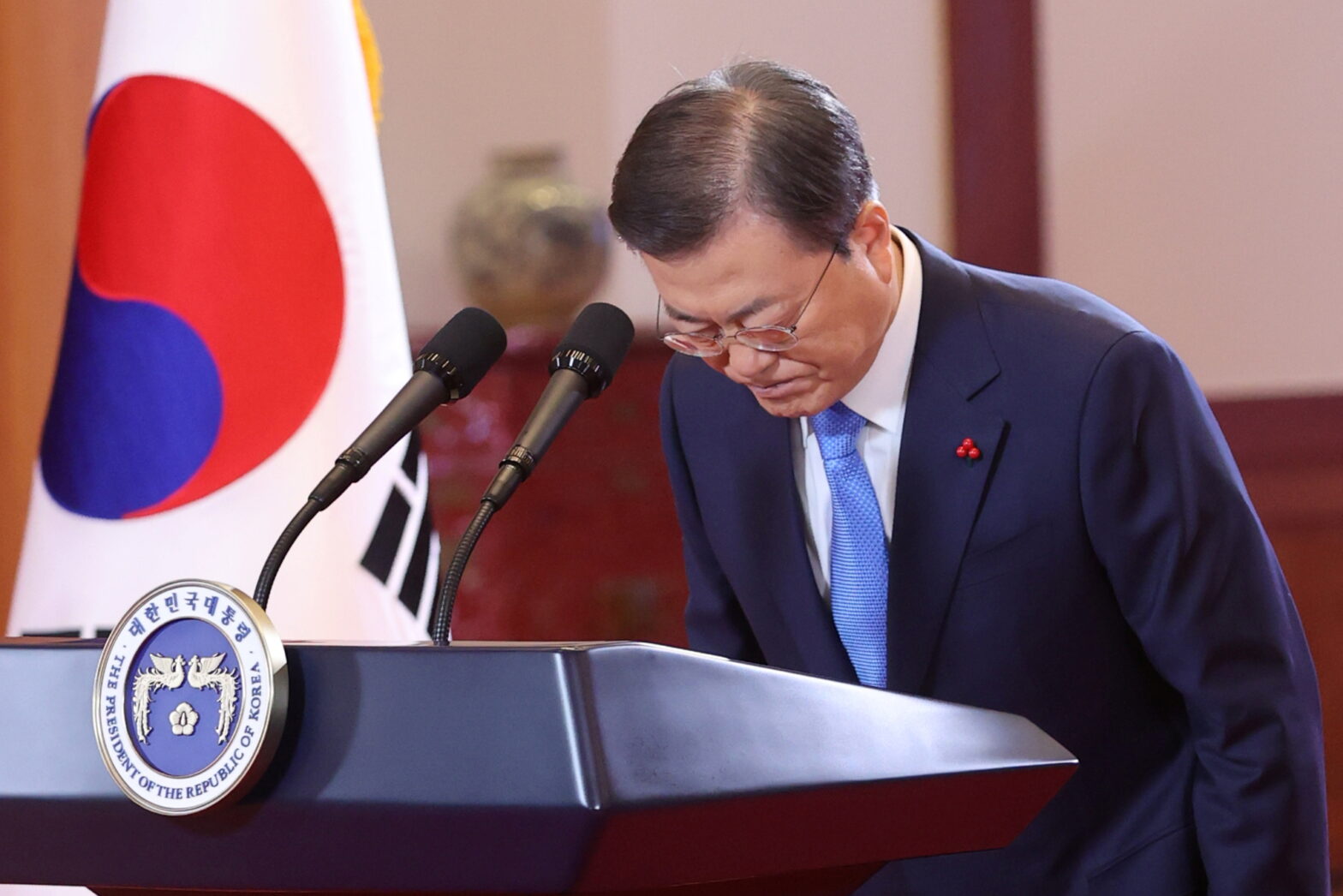by Temitope Oladeji
24/4/2025
South Korean prosecutors on Thursday announced the indictment of former President Moon Jae-in on corruption charges, alleging his involvement in securing employment for his son-in-law at a domestic airline.
According to a statement released by the Jeonju District Prosecutors’ Office, former President Moon was formally charged with corruption for allegedly accepting $150,000 dollars in connection with facilitating the appointment of his son-in-law at Thai Eastar Jet, a low-cost airline.
The indictment comes amid heightened political crisis in South Korea, where the nation is preparing for elections scheduled for June 3.
The country’s political landscape has already been rocked by the removal of President Yoon Suk Yeol from office, following a brief and controversial imposition of martial law.
Former President Moon served as president from 2017 to 2022 and was widely recognized for his diplomatic initiatives with North Korea, including efforts that led to historic summits between North Korean leader Kim Jong Un and U.S. President Donald Trump during his first term.
Prosecutors alleged that Moon’s son-in-law was appointed as a managing director at Thai Eastar Jet despite lacking relevant experience or qualifications in the aviation sector.
The airline was reportedly under the effective control of a former lawmaker from Moon’s Democratic Party, who is accused of orchestrating the appointment in an effort to curry favor with the president.
The prosecution further claims that all salary payments and other financial benefits received by Moon’s son-in-law between 2018 and 2020 constituted bribes, rather than legitimate compensation for services rendered.
The son-in-law has since divorced Moon’s daughter.
With this indictment, two former South Korean presidents are now entangled in ongoing legal battles.
Yoon Suk Yeol, who was recently ousted from office, is currently on trial for insurrection related to his short-lived martial law decree on December 3.
The decree, which was overturned by opposition lawmakers within six hours, has sparked serious legal consequences.
If convicted, Yoon faces the possibility of life imprisonment or even the death penalty.
However, such a sentence is considered highly unlikely to be carried out, as South Korea has observed an unofficial moratorium on executions since 1997.

